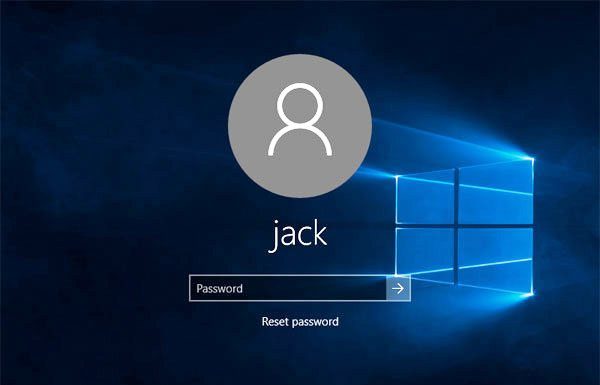Ever wanted to email a person but could not find this someone’s valid email address? Most of us have been there — reaching out to a past colleague, a former schoolmate, even contacting an online seller who’s hardly ever online. In most of these cases, sending an email is the best thing to do, but the trick is that former colleagues and classmates tend to change their mail addresses, and not all online sellers make theirs publicly available. That is where email finders come in.
Today’s email finders have gone a long way. The first email lookup tools could not pull any info except an email and had a very low accuracy rate. Now, most services worth using pull publicly available data from various channels, presenting several contact details (i.e., phone numbers, social media accounts, official websites) on a particular person in one place.
Given such versatility, these tools are mostly used for professional purposes — recruiters use them to reach out to candidates, business developers use email finders to make their offers, and marketers analyze bulk data to create targeted email lists.
The end purposes may be very different, but you should remember that not all email finders are equal. Below, we will discuss how email finders work on the example of SignalHire because this tool offers the most features for the lowest subscription cost. And yes, most of the services are worth using run-on paid subscriptions (with a few trial searches as a bonus). Still, the functionality they offer generally pays off — especially if you need an email finder for business.
SignalHire Search Functions & Top Features
SignalHire offers two main search options — via an internal database of 400+ million verified contacts or using a handy browser extension. The online database version supports individual search by name and a bulk one using company name, job title, skill set, and other keywords.
The web plugin can only apply to individual searches but is designed to make the most of them. This extension is compatible with Chrome and Firefox browsers and can easily integrate with Facebook, Twitter, Linked In, and GitHub. So, when you’re viewing someone’s online profile on any of these sites, you can quickly click on the extension icon, and it will pull all available contact info on the person whose profile you’re viewing. Besides, there is an open email finder API to make use of if that’s your preference.
Additional Features Include:
- High accuracy rate — 96%;
- Direct contacts export to CRMs and ATSs, including Zoho Recruit, PCRecruiter, Reply.io, and many others;
- Compatible with Gmail and Outlook;
- Team access to account data and contact searches;
- 5-star rating based on feedback from thousands of users;
- Responsive support, available over the phone, email, and online chat.
Subscription Costs and Plans
SignalHire has some of the most reasonable subscription plans when it comes to features and their cost. For starters, all users get five free credits every month, which translates to five free searches. If you’ve misplaced someone’s email or want to reach out to someone who changed it, the free version will have you fully covered.
If five monthly searches are not enough, you can make use of several highly flexible subscription plans that currently start at $49 a month. As with most subscription-based services, the monthly price goes down if you choose a longer plan. For example, when subscribing for a full year, the monthly cost goes to $39.
Right now, this email finder offers three types of subscriptions. The monthly cost on all of them is the same, but the logic and functionality are different. The Lead Generation plan offers 350 email lookups a month; the Phone Box will grant you 100 phone number searches over the same period. If you need full contact info — phone numbers, emails, and links to available social media accounts — consider the Recruiter Pro plan that supports 100 full profile searches a month.
Who can Benefit from Email Finders?
As you probably guessed, the main target audience for today’s email finders is recruiters. Even though LinkedIn remains a top channel for contacting potential candidates, not everyone is equally active on this professional network. So, instead of waiting for a candidate to reply over LinkedIn, recruiters can take matters into their own hands and email the top professionals directly. In the meantime, they can also use SignalHire data to check out candidates’ other social media accounts and see if this person is a good fit for their company.
However, recruiters are not the only professionals who can benefit from email finders. Business developers who constantly need to expand their operations can use this tool for lead generation. Analysts and marketers can use it for market analysis and creating targeted email lists. Even job seekers can make use of SignalHire’s recruiting functionality in reverse — that is, pull emails of top managers in companies they want to work for and message these executives directly. So, literally, anyone who wants to pull someone’s contact data can benefit from email finders.
SignalHire Alternatives
We picked SignalHire as an example of how a quality email finder works and because it offers the best combination of price versus available features. Still, it is not the only email finder out there, so you may also want to check out:
- Lusha — this service is practically the same as SignalHire, but its pricing is way higher. The cheapest Lusha plan starts at $99 and only offers 100 searches.
- Hunter is another similar tool that is more affordable but comes with limited features. It can only provide emails, and currently, the Hunter plugin is only compatible with Twitter.
- Nymeria has very affordable pricing on email lookup, but like Hunter, it does not offer any other contact methods. Plus, it has no trial version, not even for a single search.
All in all, you can try using any of the tools — some of them may even suit your email lookup goals better. Still, from what we’ve found while comparing email finders for professional use, SignalHire offers the best price-quality ratio. And, if you need the tool for occasional personal searches, the five free searches a month should have you covered.








![[Review] CUBE Thinker Notebook Laptop (Buying Guide) CUBE Thinker](https://www.techinpost.com/wp-content/uploads/2017/11/image001-4-324x235.jpg)

